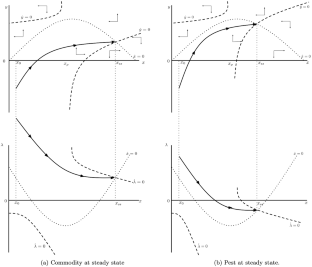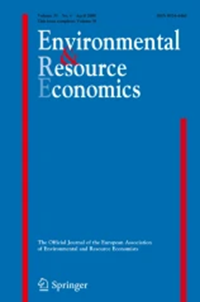我们能爱入侵物种致死吗?为入侵物种的收获创造有效的市场
IF 3.4
3区 经济学
Q1 ECONOMICS
引用次数: 2
摘要
本文章由计算机程序翻译,如有差异,请以英文原文为准。

Can We Love Invasive Species to Death? Creating Efficient Markets for Invasive Species Harvests
求助全文
通过发布文献求助,成功后即可免费获取论文全文。
去求助
来源期刊

Environmental & Resource Economics
Multiple-
CiteScore
10.20
自引率
3.40%
发文量
100
期刊介绍:
The primary concern of Environmental & Resource Economics (ERE) is the application of economic theory and methods to environmental issues and problems that require detailed analysis in order to improve management strategies. The contemporary environmental debate is in a constant state of flux and new or relatively unexplored topics are continually emerging. The Journal provides a forum for the further exploration of the causes, consequences and policy responses linked to these topics, across a range of spatial and temporal scales up to the global dimension. Contributions to the Journal should directly or indirectly be relevant to the policy formulation and application process. Areas of particular interest include: evaluation and development of instruments of environmental policy; cost-benefit and cost effectiveness analysis; sectoral environmental policy impact analysis; modelling and simulation; institutional arrangements; resource pricing and the valuation of environmental goods; environmental quality indicators. The editors wish to encourage a pluralistic approach to both theoretical and applied contributions. The publication of empirically based, policy-oriented research is given a high priority in the Journal in order to further critical discussion. Environmental & Resource Economics will also accept papers with an interdisciplinary approach, where this helps to improve knowledge of the real world complexities present, provided that the analysis retains links to or components of economic thinking. The Journal is required reading for economists, economic geographers and other academics, professionals and officials with a working interest in environmental matters.
 求助内容:
求助内容: 应助结果提醒方式:
应助结果提醒方式:


